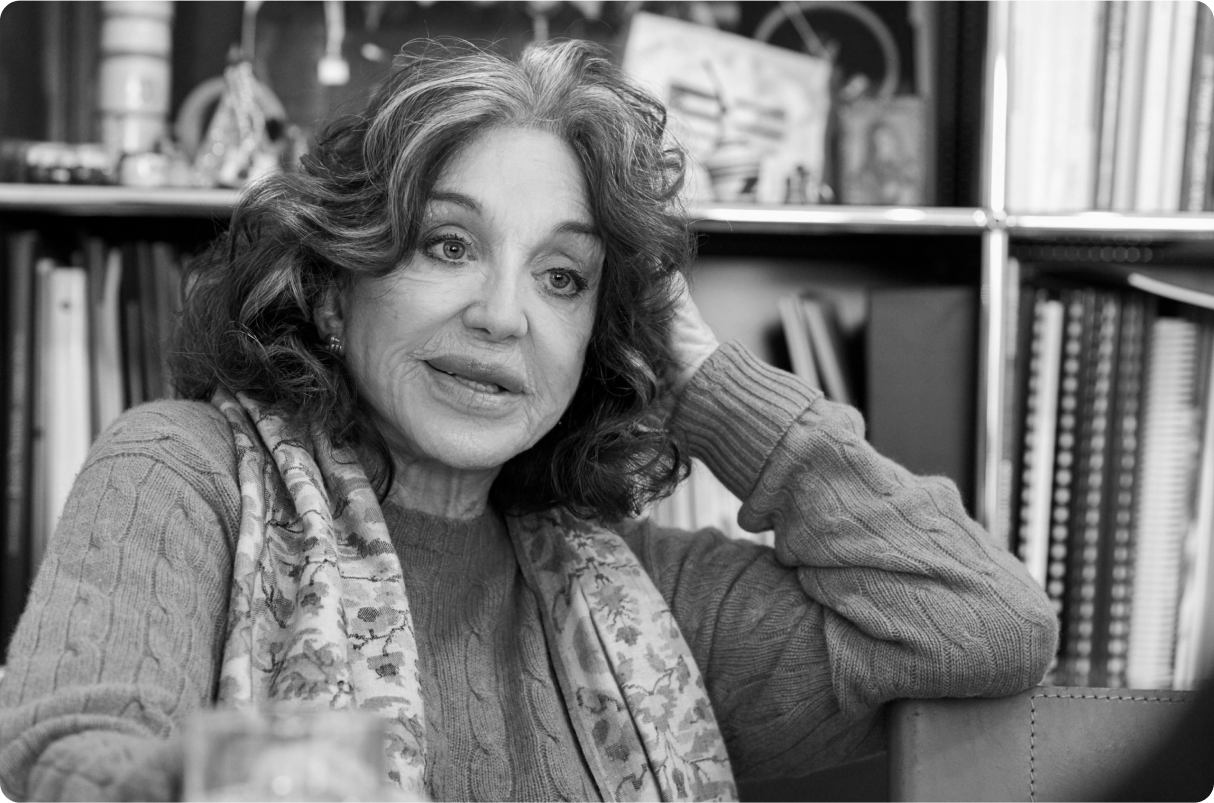Born at the dawn of the Second World War, Albina du Boisrouvray is one of those figures who mark their era by the grandeur of their work and the strength of their action.
A member of a large Franco-Bolivian family, she rebelled early on against this aristocratic, conventional and "reactionary" milieu.
As an adult, she took her destiny into her own hands and became a journalist, notably for Le Nouvel Observateur - it was she who revealed to L'Express the scoop on the conditions of Che Guevara's death and photos of guerrilla daily life in the jungle - then a successful film producer with her company Albina Productions, which she founded in 1970.
In a career spanning 18 years, she produced 22 films. Her credits include 36, le Grand Tournant (1969, Pathé Cinéma), Les Zozos (1972), Andrzei Zulawski's L'important c'est d'aimer (1975), Police Python (1976) and Alain Corneau's Fort Saganne (1984).
At the same time, Albina du Boisrouvray and Spanish writer Juan Goytisolo founded the literary magazine Libre in 1970, publishing works by Latin American writers such as Octavio Paz, Mario Vargas Llosa, Gabriel Garcia Marquez and Carlos Fuentes.
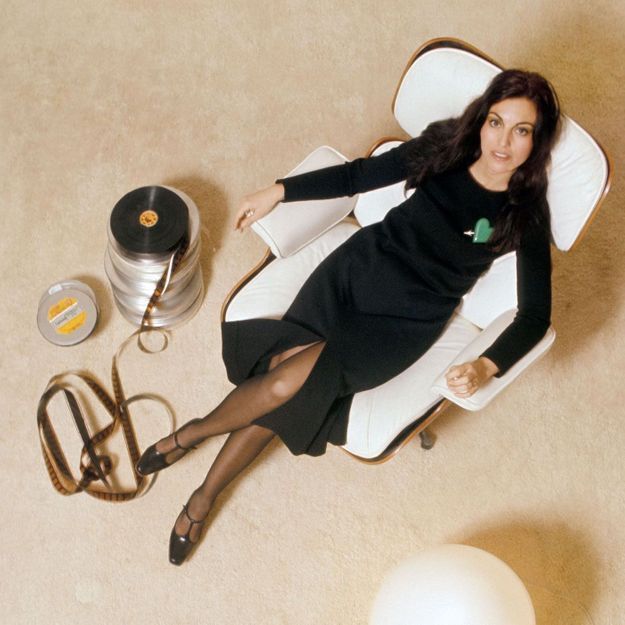
From the world's leftist causes to May 68, from the ecological cause to the fight for women's emancipation, Albina du Boisrouvray was at the heart of the major struggles of the second half of the 20th century.
In January 1986, his life was turned upside down by a terrible tragedy: the tragic death of his only son François-Xavier Bagnoud, during the Paris-Dakar Rally, in the crash of the helicopter carrying race director Thierry Sabine and Daniel Balavoine.
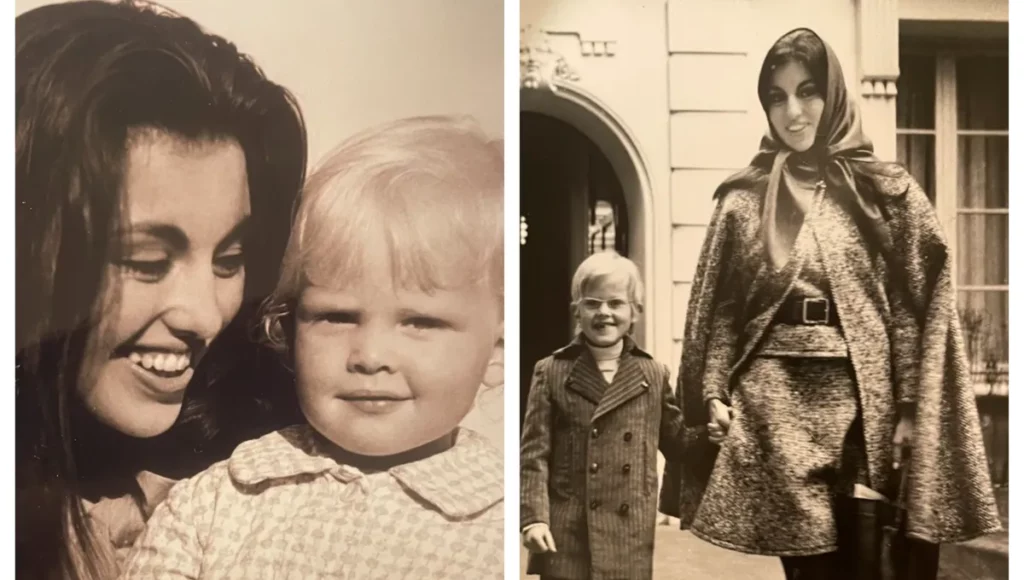
In the face of darkness, she opposes a luminous allegiance to life: she abandons her brilliant career as a film producer to champion the cause of tens of millions of vulnerable children victimized by the devastating AIDS pandemic, and of women without access to their basic rights.
After spending two years with Médecins du Monde, during which she went on mission to Lebanon during the war, Albina devotes all her energy, creativity, experience and entrepreneurial credibility to humanitarian causes, social development and research on numerous projects around the world.
In 1989, she decided to devote 3/4 of her fortune - inherited in 1980 - to creating her first Foundation and militant humanitarian aid NGOs bearing the name and initials of her son François-Xavier Bagnoud (FXB), the first of which, the Association François-Xavier Bagnoud, operated from the Valais region of Switzerland.
In 1990, with this first FXB Foundation, it provided substantial support for the research and initiatives of Dr. James Oleske - described at the time by the New York Times as " a leader in the fight against AIDS " - notably through the funding of programs at the FXB Center and a chair at Rutgers New Jersey Medical School, with the aim of improving the local clinical program and disseminating the FXB Center's expertise to tackle the rapidly growing global HIV pandemic.
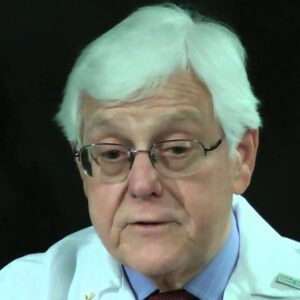
" She cared for children orphaned by AIDS when no one else did "
- Dr. James Oleske, pediatrician, pioneering HIV/AIDS researcher, Professor Emeritus at Rutgers New Jersey Medical School
That same year, the first FXB Foundation decided to finance the construction of a new aerospace and aeronautics building on the University of Michigan campus in Ann Arbor, where François-Xavier had studied engineering: the FXB Building. The FXB Building will house research laboratories, classrooms, offices, a conference room and a library, contributing to the development of knowledge and the training of future generations of professionals in the field. Located to the south-east of the FXB Building, the Wave Field is a memorial to François-Xavier Bagnoud and a true work of art. This earthen sculpture, representing a wave field, is transformed throughout the day by variations in light and the play of shadows. It was designed and created by Maya Lin, an artist renowned for her work on the Vietnam Veterans Memorial in Washington, D.C., and the Civil Rights Memorial in Montgomery, Alabama. Over the years, other initiatives have been undertaken, such as the creation of the FXB Flight Institute and the FXB Aerospace Prizes.
Starting in 1991, Albina du Boisrouvray set up the VillageFXB model in Africa, a pioneering, holistic three-year program designed to eradicate extreme poverty in AIDS-stricken families and communities, enabling them to become economically self-sufficient and raise their children and foster orphans with a future.
A revolutionary transgression for its time, this program marked a radical and innovative change in the way aid was administered, bringing lasting, self-sustaining change to individuals and communities.
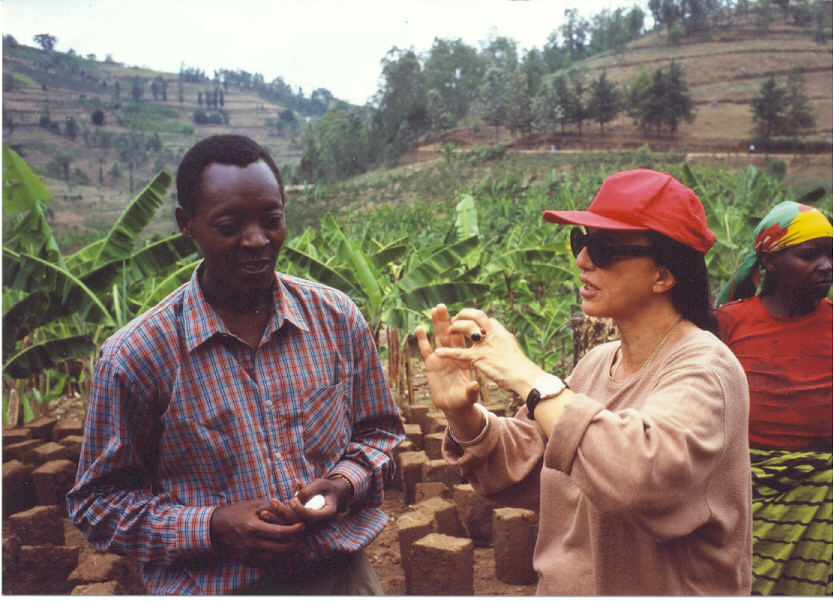
"This approach involves providing an income-generating activity, without repayment or interest, that brings totally destitute families up from the basement of extreme poverty to the first floor, within three years, and access to their basic needs, all as part of a broader investment in the ability of poor people to achieve and maintain long-term good health and well-being. In 1989, the fashionable approach to eradicating poverty was a singular focus on microcredit: lending money to poor people, particularly women, to set up self-sustaining businesses. I soon realized, however, that people living in extreme and permanent poverty would never be able to repay this money, unless they stopped their business in the process."
- "Health is not alone", Albina du Boisrouvray in " To Save Humanity. What Matters Most for a Healthy Future, Edited by Julio Frenk and Steven Hoffman, 2015, Oxford University Press
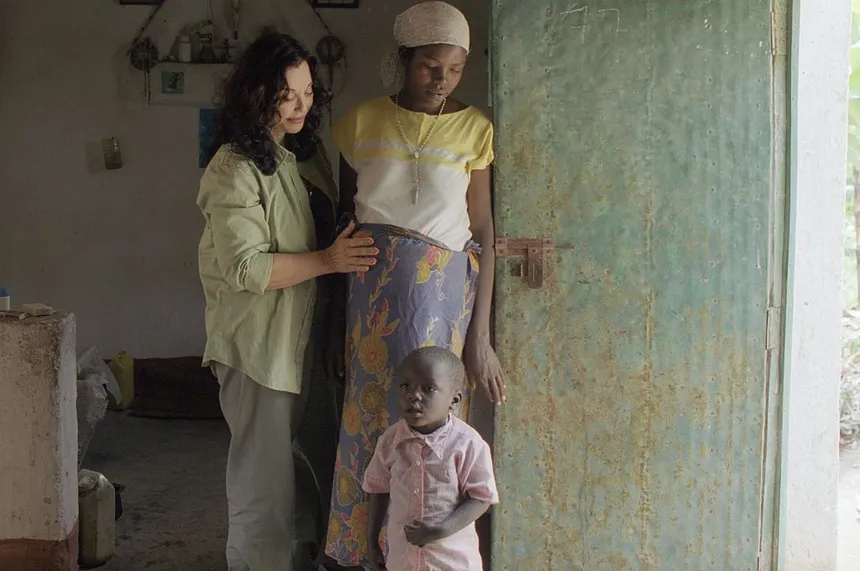
In 1993, Albina du Boisrouvray founded the François-Xavier Bagnoud Center for Health and Human Rights at Harvard as part of a donation, from the first FXB Foundation, of a building and a chair at the School of Public Health.
Her goal? To create an umbrella of protection over the world's vulnerable children, the forgotten ones, those she calls the dumped generation. The FXB Center's mission is to promote, through its research, a world that respects the human rights of all, with a special focus on children, and protects them from the injustices caused by discrimination, poverty, conflict, disaster and oblivion.
The great Harvard professor Jonathan Mann, Albina du Boisrouvray's friend and accomplice, was able to deploy his paradigm, which emphasizes the inextricable link between health and access to basic human rights. It was to extend the teaching, research and activism of this pioneer in the fight against HIV/AIDS that Albina du Boisrouvray imagined the FXB Centre.
Jonathan Mann's approach was clear and visionary: public health can only have a lasting impact if the social and cultural factors - which increase the risk of disease and prevent people from accessing their essential rights - are addressed simultaneously.
The center currently works with a diverse group of academics, educators, elected officials, government agencies, non-profit organizations and members of the international political community to advance this binomial of health and human rights.
From the corridors of the UN to the amphitheaters of Harvard, from Nelson Mandela's house to the sewers of Ulan Bator, Albina du Boisrouvray has fought all over the world to improve the lives of AIDS orphans, Thai and Burmese prostitutes and poor families in Rwanda after the Tutsi genocide.
Described by Time Magazine as one of "Europe's heroes" and a kind of alchemist "who has transformed tragedy into love for 100 million AIDS orphans and children made vulnerable by the pandemic", Albina du Boisrouvray has received numerous awards and distinctions for her body of work.
These include the titles of Officier des Arts et des Lettres, Officier de l'Ordre National du Mérite and Officier de la Légion d'Honneur; the North-South Prize of the Council of Europe; the title of Doctor of Humanistic Letters from the University of Michigan; the title of Doctor of Humanistic Letters from Rutgers University ; the title of John Harvard Fellow of Harvard University; a Special Recognition Award for his "Response to the AIDS Orphan Crisis" at the second conference on global strategies for the prevention and transmission of AIDS from mother to child in Montreal; the Prize for Excellence in Global Public Health Diplomacy, awarded by the Board of Directors of the Jodhpur School of Public Health, in recognition of the remarkable work she has accomplished in Rajasthan since 1996; and the "Life Time Contribution Award" in recognition of her actions in all 35 States and Territories of the Indian Union, presented by the President of India, Avul Pakir Jainulabdeen Abdul Kalam, in the presence of Amartya Sen.
These awards recognize the extraordinary career of a free, humanist woman committed to her time. A woman driven by a thirst for justice and an ardent courage to live.
Le Courage de vivre is the title of Albina du Boisrouvray's autobiographical book, published in 2022 by Editions Flammarion.


